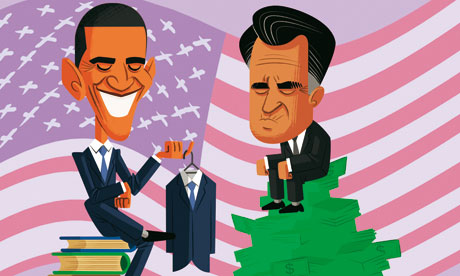
Among the publishers of books on How To Succeed in work and life, there's a widespread notion that prominent politicians have much to teach the rest of us – and that American presidents are the wisest life coaches of all. There are texts on how to lead like Obama, innovate like FDR and cultivate optimism like Reagan. The latest addition to this stable, Obama Karma, by the British psychiatrist Russell Razzaque, explores the current president's "emotional intelligence", and it's a genuinely thought-provoking work. But when it comes to the presidents-as-gurus genre as a whole, I'm sceptical. Why assume that running a country is anything like running a business, let alone a family? Just because you've got what it takes to be president, it doesn't mean you are an expert on living sanely. Indeed, the opposite may be true: according to a new paper in the Journal of Personality and Social Psychology, the most successful presidents share key character traits with psychopaths.
So it was refreshing to discover some properly useful tips in Michael Lewis's much-trumpeted, 15,000-word profile of Obama in October's Vanity Fair. The president, Lewis reveals, is up to speed on research into "decision fatigue", which suggests that making decisions depletes your capacity for making further decisions; accordingly, he tries to eliminate unnecessary choices. "I wear only grey or blue suits," he told Lewis. "I'm trying to pare down decisions… You need to focus your decision-making energy. You need to routinise yourself." You needn't be making decisions about military interventions to find this approach useful. In any life, there are minutiae, and there are things that matter. Being monotonous in your handling of the former means you stand more chance of excelling in the latter.
Not long after Lewis's piece came out, the Washington website Politico published a dissection of the failures of Obama's rival, Mitt Romney, and it is a fascinating reminder that there's sometimes more to learn from how politicians screw up than from their successes. Romney – as he explains in a book called Turnaround, his own contribution to political self-help – is famed for his organisational and crisis-management skills. Yet, Politico claims, his campaign is in chaos because he can't delegate efficiently and panics in emergencies. Which suggests a lesson you won't find in Turnaround: if you're certain you know what your strengths are, consider that you might be wrong – precisely because you've always assumed they're strengths and thus not in need of improvement.
The psychologist Steven Reiss has a different theory about why Romney keeps making wealth-related gaffes: "self-hugging". This refers to the mistake people make when they discover that something brings them gratification – in his case, high status – then imagine they've discovered something universal about human nature. "Romney tells people how wealthy he is to impress them," Reiss argues, because he can't imagine anyone not agreeing that being a plutocrat is marvellous. His critics, he assumes, can only be motivated by envy; it never occurs to him that they might simply have a different definition of the good life, in which status isn't so highly valued. That's the built-in problem, psychologically speaking, with our political leaders: they're generally the kind of people who think being a political leader is the best thing in the world.
oliver.burkeman@theguardian.com
Follow Oliver on Twitter.

